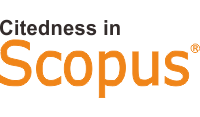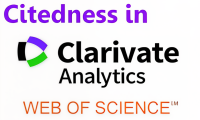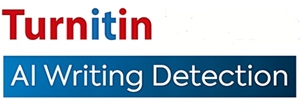Challenges and Strategies for Productive Waqf Management: An Analysis of Muhammadiyah’s MPW and its Role in Community Economic Development
DOI:
https://doi.org/10.46870/milkiyah.v4i2.1684Keywords:
Economy, Muhammadiyah, Waqf, WelfareAbstract
MPW is an institution established by Muhammadiyah to manage Waqf. Although its role in supporting the welfare of the community in Padang City, its actual economic impact requires further investigation, making it an interesting topic for research. This study aims to analyse the role of MPW in optimising productive Waqf to support the local economy. Using a qualitative case study approach, primary data was collected through in-depth interviews with regional executives and three Waqf beneficiaries. Secondary data was obtained from a review of relevant literature. The findings highlight several key points. With regard to the achievement of objectives, the economic impact on beneficiaries remains limited, and full economic independence has not yet been achieved. This requires a strategic shift from direct assistance towards empowerment through entrepreneurship training, small business mentoring, and results-based evaluation. In terms of integration, the low participation of beneficiaries in planning and evaluation, coupled with one-way communication, highlights the need for two-way communication forums, greater involvement of beneficiaries, and synergy with Islamic financial institutions to increase inclusiveness. Finally, in terms of adaptation, challenges in adjusting to local needs, ensuring transparency, and guaranteeing sustainability require solutions such as publishing open reports, developing programmes based on local needs, and involving relevant stakeholders.
References
Adhim, M. F. A. (2024). Analisis Implementasi Waqf Produktif dalam Pemberdayaan Ekonomi Masyarakat di Masjid Baitul Muttaqin Brebes Jawa Tengah. Semarang: Universitas Islam Sultan Agung. https://repository.unissula.ac.id/37240/
Afada, A. (2024). The Role of Waqf Bank in Strengthening the Islamic Economy. Al-Awqaf: Jurnal Waqf dan Ekonomi Islam, 17(2), 83–94. https://doi.org/10.47411/al-awqaf.v17i2.267
Agustina, M. (2025). The Role of Productive Waqf in Improving the Economic Welfare of the Community: Legal Study and Implementation in Digital Waqf Institutions Dompet Dhuafa. Journal of Sharia Economic Law, 3(1), 39–56. https://doi.org/10.37680/jshel.v3i1.7096
Ainulyaqin, M. H., Achmad, L. I., & Meilani, M. A. (2023). Peningkatan Kesejahteraan Santri Berbasis Manajemen Pengelolaan Waqf Produktif di Pesantren Assyifa Subang. Jurnal Ilmiah Ekonomi Islam, 9(1), 221–228. https://doi.org/10.29040/jiei.v9i1.7951
Alam, A., Rahmawati, M. I., & Nurrahman, A. (2022). Manajemen Waqf Produktif dan Tantangannya di Majelis Waqf dan Kehartabendaan PDM Surakarta. Profetika: Jurnal Studi Islam, 23(1), 114–126. https://doi.org/10.23917/profetika.v23i1.16799
Anggraeni, L., & Anggraini, D. (2024). Peran Produktif Waqf pada Bank Waqf Mikro di Masyarakat Kota Jambi. Ekonomis: Journal of Economics and Business, 8(1), 598–606. https://doi.org/10.33087/ekonomis.v8i1.1596
Arab, S. H. Y., & Zakariyah, H. (2023). Waqf Funds for Higher Education in Malaysia and Bahrain: Drawing Lessons from the Experience. Milkiyah: Jurnal Hukum Ekonomi Syariah, 2(2), 105–114. https://doi.org/10.46870/milkiyah.v2i2.659
Asyari, A., Hoque, M. E., Susanto, P., Begum, H., Awaluddin, A., Marwan, M., & Mamun, A. A. (2024). Online cash waqf behavioral intention: the role of knowledge of cash waqf and trust. Journal of Islamic Marketing, 15(11), 2864-2890. https://doi.org/10.1108/JIMA-07-2023-0224
Azrak, T. (2022). The Roles of Cash Waqf in Improving The Economic Welfare: Case Study of Turkey. The Journal of Management Theory and Practice (JMTP), 3(1), 42–47. https://doi.org/10.37231/jmtp.2022.3.1.200
Chu, Z., Chen, X., & Yang, J. (2025). Impact of Data Factor and Data Integration on Economic Development: Empirical Insights From China. Telecommunications Policy, 103004. https://doi.org/10.1016/j.telpol.2025.103004
Clark, R., Reed, J., & Sunderland, T. (2018). Bridging funding gaps for climate and sustainable development: Pitfalls, progress and potential of private finance. Land use policy, 71, 335-346. https://doi.org/10.1016/j.landusepol.2017.12.013
Creswell, J. W. (2009). Research Design: Qualitative, Quantitative, and Mixed Methods Approaches (3rd ed.). SAGE Publication, Inc.
Cupar, T., Klanjšek, R., Košir, K., Lavrič, M., & Vazsonyi, A. T. (2025). Effects of Parenting Styles On Academic Achievement: The Moderating Role of A Country’s Economic Development. Children and Youth Services Review, 176, 108429. https://doi.org/10.1016/j.childyouth.2025.108429
Dushkova, D., & Ivlieva, O. (2024). Empowering communities to act for a change: A review of the community empowerment programs towards sustainability and resilience. Sustainability, 16(19), 8700. https://doi.org/10.3390/su16198700
Firadilla, R. (2024). Praktik Akuntabilitas dan Transparansi dalam Tata Kelola Waqf Tunai (Studi Kasus: Badan Waqf Uang Muhammadiyyah Sumatera Barat). Maro: Jurnal Ekonomi Syariah dan Bisnis, 7(1), 94–108. https://doi.org/10.31949/maro.v7i1.9036
Hasan, R., Ahmad, A. U. F., & Bt. Siraj, S. A. (2022). Building trust in waqf management—implications of good governance and transparent reporting. The Singapore Economic Review, 67(01), 459-475. https://doi.org/10.1142/S0217590820420059
Huda, M., & Supriyadi, A. P. (2025). Productive Waqf Law Reform: A Solution to Support Indonesian Local Economy amid Contemporary Global Recession. MILRev: Metro Islamic Law Review, 4(1), 319–359. https://doi.org/10.32332/milrev.v4i2.10210
Jafar, A., Ibrahim, H., & Malik, R. (2025). Waqf: From classical charitable system to modern financial tool. International Journal of Ethics and Systems. https://doi.org/10.1108/IJOES-10-2024-0354
Jha, P., & Talathi, K. (2024). Impact of Colonial Institutions on Economic Growth and Development in India: Evidence from Night-Lights Data. Economic Development and Cultural Change, 72(4), 1653–1708. https://doi.org/10.1086/725058
Lin, Y.-C., & Xu, X. (2025). Intelligence-driven Growth: Exploring the dynamic impact of digital transformation on China’s high-quality economic development. International Review of Economics & Finance, 101, 104240. https://doi.org/10.1016/j.iref.2025.104240
Mahardika, S. G., & Tanweer, A. (2025). Environmentally Friendly Waqf Model: A Response to Sustainable Economic Development and the Presence of a Circular Economy. Journal of Lslamic Economics and Bussines Ethics, 2(1), 68–93. https://doi.org/10.24235/jiesbi.v2i1.180
Marenza, S. E., & Karimuddin, K. (2024). Zakat and Waqf Managament in Indonesia and Pakistan: A Comparative Study. Milkiyah: Jurnal Hukum Ekonomi Syariah, 3(1, 43-52. https://doi.org/10.46870/milkiyah.v3i1.805
Mursal, M., Lastina, I., Fitri, R., Yanti, N., & Wandi, J. I. (2024). Peran Waqf Dalam Mewujudkan Kesejahteraan Sosial: Perspektif Dari Tafsir Ekonomi Islam. El-kahfi: Journal of Islamic Economics, 5(01), 103–111. https://doi.org/10.58958/elkahfi.v5i01.234
Qolbi, N., Ayuniyyah, Q., & Beik, I. S. (2022). Analisis Strategi Pengelolaan Waqf Produktif di Baitul Waqf: Pendekatan Analytic Network Process (ANP). JIIP-Jurnal Ilmiah Ilmu Pendidikan, 5(11), 4939–4948. https://doi.org/10.54371/jiip.v5i11.1109
Ravi, M. I. M. R., & Redzuan, N. H. (2022). Development Residential Property For B40: A Proposed Collaboration Framework Between Islamic Bank, Waqf, And Zakat Institutions. International Journal of Islamic Business, 7(2), 13–43. https://doi.org/10.32890/ijib2022.7.2.2
Saputra, W. (2025). Skill Waqf as a Mechanism for Economic Empowerment of Youth: A Comprehensive Literature Review Grounded in Islamic Economic Principles. JIMU: Jurnal Ilmiah Multidisipliner, 3(02), 1308–1319. https://doi.org/10.70294/jimu.v3i04
Sarif, S., Ali, N. A., & Kamri, N. ‘Azzah. (2024). Zakat for Generating Sustainable Income: An Emerging Mechanism of Productive Distribution. Cogent Business & Management, 11(2312598), 1–14. https://doi.org/10.1080/23311975.2024.2312598
Sayoti, N. S. I. M., & Omar, A. J. (2025). Strategies for Developing Waqf Land in Kelantan, Malaysia. Research in Management of Technology and Business, 6(1), 764–776. https://doi.org/10.30880/rmtb.2024.00.00.000
Stake, R. E. (2010). Qualitative Research: Studiying Hor Things Work. The Guilford
Steers, R. M. (1999). Efektivitas Organisasi. Pustaka Siswa
Sundari, S. (2023). Waqf Produktif Sebagai Strategi Pemberdayaan Ekonomi Masyarakat Menuju Pembangunan Berkelanjutan di Era 4.0. La Zhulma: Jurnal Ekonomi Syariah, 2(1), 57–68. https://doi.org/10.70143/lazhulma.v6i1
Susanti, N. D., Prawira, A., Nafsiyati, H., Syarkaini, Susiana, Ansar, & Mursal. (2023). Ekonomi Kreatif (1st ed.). Afasa Pustaka.
Usman, M., & Rahman, A.Ab (2023a). Funding higher education through waqf: a lesson from Malaysia. International Journal of Ethics and Systems, 39(1), 107-125. https://doi.org/10.1108/IJOES-12-2021-0217
Usman, M., & Rahman, A. Ab. (2021). Financing Higher Education through Waqf in Pakistan: Issues and Challenges. Jurnal Pengurusan, 62, 159 – 172. https://doi.org/10.17576/pengurusan-2021-62-13
Wijethunga, A. W. G. C. N., Rahman, M. M., & Sarker, T. (2025). Does financial Development Moderate The Relationship Between Economic Growth and Environmental Quality? Environmental and Sustainability Indicators, 27, 100728. https://doi.org/10.1016/j.indic.2025.100728
Yakob, R., Bangaan Abdullah, M. H. S., Yakob, S., Yakob, N., Md. Razali, N. H., & Mohamad, H. (2022). Analysis of enterprise risk management practices in Malaysian waqf institutions. International Journal of Islamic and Middle Eastern Finance and Management, 15(3), 569-585. https://doi.org/10.1108/IMEFM-07-2020-0330
Zhang, P., & Li, H. (2025). Sustainable Transformation Paths for Value Realization of Eco-Products Empowered by New Quality Productivity: Based on Provincial Panel Data in China. Sustainability, 17(11), 4773. https://doi.org/10.3390/su17114773
Zunaidi, A., Rizqiyyah, R. N., Nikmah, F. K., & Maghfiroh, F. L. (2023). Pengoptimalan Manajemen Waqf Produktif dalam Mendorong Terwujudnya Sustainable Development Goals (SDGs). Jurnal Ilmiah Pangabdhi, 9(2), 159–165. https://doi.org/10.21107/pangabdhi.v9i2.21276
Downloads
Published
How to Cite
Issue
Section
License
Copyright (c) 2025 Mursal, Salman Munthe, Rahmat Ilyas, Muhammad Farhan Abimayu

This work is licensed under a Creative Commons Attribution-ShareAlike 4.0 International License.

















